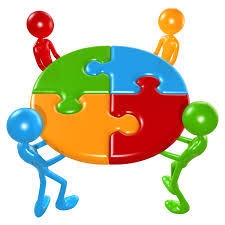Best ways to communicate based on personality types
 In my last blog post, I discussed the Myers-Briggs personality test and how various personality types view the world. The theory is that each of the 16 unique personalities identified in the Myers-Briggs test make decisions in different ways, helping us to better understand motives and communication styles. In this post, I want to discuss how you can use this information in a law firm.
In my last blog post, I discussed the Myers-Briggs personality test and how various personality types view the world. The theory is that each of the 16 unique personalities identified in the Myers-Briggs test make decisions in different ways, helping us to better understand motives and communication styles. In this post, I want to discuss how you can use this information in a law firm.
Introversion vs. extroversion
This personality type describes how a person relates to other people. An introvert is a “thinker” who likes to take time to analyze details and all relevant information before making a decision or giving an option. An extrovert is more of a “think out loud” type of person who likes to discuss ideas verbally to arrive at a decision or opinion.
It’s better to provide an introvert with a memo or send an email to provide your co-worker time to think about what you’re saying before they respond. If you’re having a team meeting, send an agenda to everyone a day or so in advance so that introverts have time to digest the material and think about what they want to bring up at the meeting. This encourages introverts to contribute more at meetings. On the other hand, an extrovert loves group meetings because it allows everyone to “think out loud” and brainstorm to find a solution.
Intuition vs. sensing
This type of personality describes how a person makes decisions. Intuitors use insight to understand the deeper meanings and tend to see the big picture. They like to use theory and are willing to try what hasn’t been done before. Intuitors will try various solutions until they find one that works. This type of employee is excellent at researching issues and developing various approaches to solving a problem.
Sensors want to master facts and they pay close attention to detail. They’re masters at data collection and establishing the relevant facts. They trust what has been done before and make use of materials and resources that have worked for them in the past. For example, a sensor is very good at establishing the case file and gathering data to support various theories that an intuitor develops.
Feeling vs. thinking
Feelers have a compassionate and warm nature. They look at issues from other viewpoints and use that information when making decisions. They don’t blindly follow what has been done in the past or what’s recommended if it goes against the “greater good.” They’re also very persuasive. Employees who are feelers are able to work closely with clients and make them feel at ease. Feelers can translate client “feelings” and express what they’re trying to say even when the client is emotional.
Thinkers need rules and routines. A thinker uses pros and cons to analyze and solve problems and they tend to see things in black and white, identifying logical inconsistencies. Thinkers can look past emotions and feelings to make decisions based on logic and reason. Employees who are thinkers don’t allow emotions to interfere with developing a strategy that is in the best interest of the client. This can be helpful in cases where others may be distracted by the emotional aspect of the case, such as a wrongful death case or probate litigation.
Perceiving vs. judging
This personality type describes how a person controls their environment. Judgers are flexible, spontaneous, and respond quickly. They like to gather new information by leaving things open to explore all options. They’re unscheduled and go with the flow. Employees who are judgers are able to handle high-stress situations where they must think on their feet and change direction at a moment’s notice (side note: check out my post on operating in panic mode). They do well in law firms where each day brings several new “fires” to be put out and can easily transition from one task to another without losing focus.
Perceivers want order – they try to avoid chaos. They organize, plan, and follow through. Perceivers push to get things settled or decided in the most efficient manner. They love structure, routines, and to-do lists. They perform much better if they’re able to plan their day and nothing occurs to disrupt their plans. A perceiver works better in a law firm where they can do the same thing every day without “emergencies” which can force them to change gears quickly.
For more information
If you want to delve deeper into how you can use personality types to help you communicate with others or find a job that suits your personality, there are tons of great resources out there. This article from Social Science Insights (Making the Most of Personality and Communication Styles Within Business) provides a succinct overview for understanding personalities in a professional setting, especially when it comes to language and communication. If you’re interested in how to convince and influence people by leveraging personality traits, think about the different techniques you should consider for individual thinkers vs. group thinkers, auditory vs. visual learners, and talkers vs. listeners.“Work It Out – Using Personality Type to Improve Temp Performance” by Sandra Krebs is one that may help mangers and employers as they work with staff. And if you want to explore your own personality, check out “Jungian 16 Types Personality Test: Find Your 4 Letter Archetype to Guide Your Work, Relationships, & Success” by Richard N. Stephenson.

Comments
Thanks for the information, love learning about this stuff. Side note, you got perceive and judges mixed up.
Leave a Reply